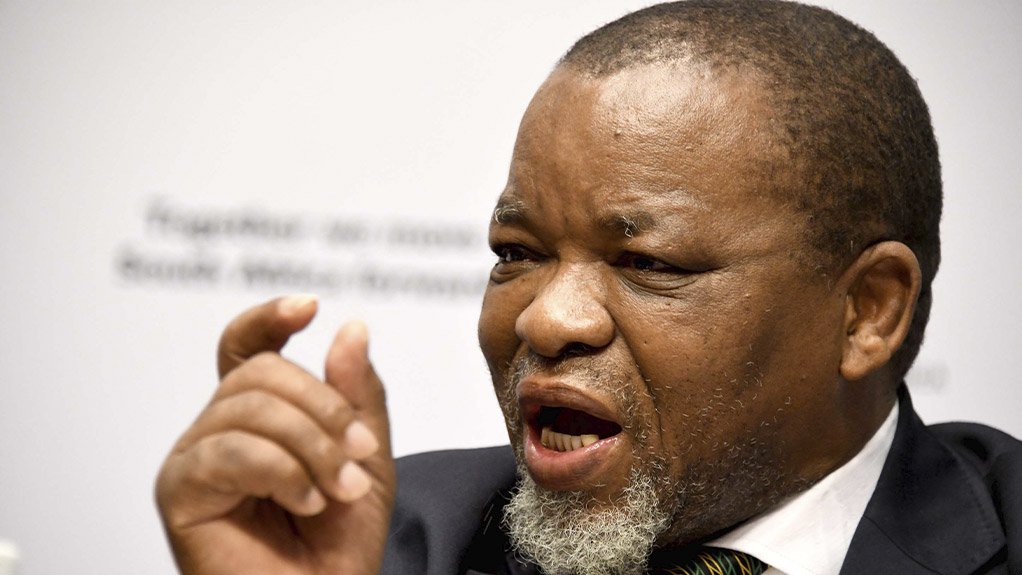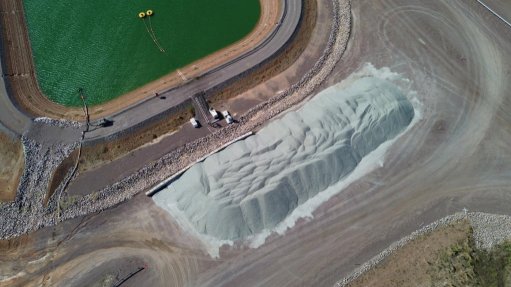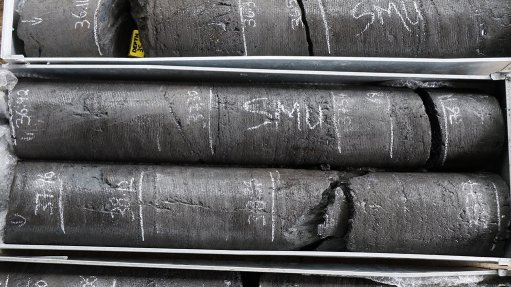South African mining industry must not be ‘bullied' by those who impose high tariffs – Mantashe
Mineral and Petroleum Resources Minister Gwede Mantashe has urged South African miners to stand up to “bullies” by sending their minerals to countries that impose lower or no tariffs, rather than those countries that plan to raise tariffs.
“The most important thing for us as developing economies is that we should not be bullied for what we own. We must have a view, and our view must be respected. Remember that these critical minerals, people need them. They must talk to us.
“We must not give them critical minerals on their own terms and our views are ignored. If you get a 30% tariff imposed on you, please send those minerals somewhere else where there are no tariffs, where you get a fair value,” he said during the G20 Critical Minerals Stakeholder Engagement, in Sandton, on July 29.
The event served as a platform for government, industry, labour and the public to engage on the G20 Critical Minerals Framework and discuss its operationalisation through partnerships and technical cooperation.
Mantashe was defiant in the face of increased pressure from the US regarding its trade relationship with South Africa, insisting that bowing to tariff impositions and threats of sanctions on key political figures would be misguided.
He doubled down on the value of the BRICS alliance, despite US President Donald Trump’s threat to impose an additional 10% tariff on all BRICS members, including South Africa.
“The emergence of BRICS poses a threat and destabilises the balance of forces and the leadership of the world. We must not be apologetic for being part of initiative that takes us forward. We must never. We must continue.
“If being a member of BRICS attracts tariffs from the US, it says to us, let's diversify our markets more aggressively and not focus where tariffs are imposed on us. We must sell where we get optimal market value for our minerals. That's what we should be doing. It's our duty. We must work together in that,” Mantashe said.
He emphasised that the time of exporting large quantities of raw minerals needed to come to an end and that more beneficiation must be enforced in-country.
“We mine, we make other countries rich and we remain poor. The time for exporting raw commodities as they are has come to an end. Let's add value close to the point of production and export processed minerals, not raw commodities.
“Quotas of minerals must be processed here. We set them, and we must all comply with that so that people who want to add value on critical minerals must come here and add value here. We want refineries. We want every processing plant to be in South Africa, and we must then export processed minerals,” he said.
However, he conceded that this would have a negative impact on railways and ports that have historically relied on the export of raw minerals as their primary source of revenue.
“There are rail lines that are going to be less important than they are today. Our iron-ore must be processed here and not taken to Saldanha [Bay for export]. Our manganese must be processed here and not taken to port. Our coal must be processed here and not taken to Richards Bay.
“So those rail lines are going to pay the price. But the reality of the matter is that, as we export raw commodities, we are exporting wealth and we are exporting jobs and we must change that,” he said.
Mantashe also contested the prevailing notion that only those minerals important for the green economy qualify as "critical".
“We must demystify this thing. Actually, every mineral is critical. That's why there is no universal definition of critical minerals, because every mineral is critical depending on where you are.
“The US defines critical minerals on the basis of security priorities. The EU will look into the green economy. China will look into development. We must look into various issues, such as employment creation, export volumes and all that.
It was with this view that Mantashe defended South Africa’s inclusion of coal as one of the five most critical minerals in its ‘Critical Minerals and Metals Strategy’, which was published in May.
“Coal is in the top five here because it employs many people. Export volumes are huge and, therefore, we can't ignore it and think it is not critical. It is a critical mineral because of the contribution it is making,” he said.
Coal’s domestic relevance also ties into one of the most pressing economic challenges facing South Africa, which is the cost of energy. Mantashe expressed deep concern about the competitiveness of the country’s electricity tariffs, arguing that they undermined the global competitiveness of South African mining and industrial sectors.
“One of the things that the government of South Africa has to grapple with is the price of electricity. Our government cannot be competitive if our prices of electricity are at the level they are, because that is a competitive advantage for our competitors.
“We must take that competitive advantage away from our competitors. How that will be? I don't know, but it must be done. We must create tariffs that make our minerals competitive in the globe, it's very important,” Mantashe said.
Article Enquiry
Email Article
Save Article
Feedback
To advertise email advertising@creamermedia.co.za or click here
Press Office
Announcements
What's On
Subscribe to improve your user experience...
Option 1 (equivalent of R125 a month):
Receive a weekly copy of Creamer Media's Engineering News & Mining Weekly magazine
(print copy for those in South Africa and e-magazine for those outside of South Africa)
Receive daily email newsletters
Access to full search results
Access archive of magazine back copies
Access to Projects in Progress
Access to ONE Research Report of your choice in PDF format
Option 2 (equivalent of R375 a month):
All benefits from Option 1
PLUS
Access to Creamer Media's Research Channel Africa for ALL Research Reports, in PDF format, on various industrial and mining sectors
including Electricity; Water; Energy Transition; Hydrogen; Roads, Rail and Ports; Coal; Gold; Platinum; Battery Metals; etc.
Already a subscriber?
Forgotten your password?
Receive weekly copy of Creamer Media's Engineering News & Mining Weekly magazine (print copy for those in South Africa and e-magazine for those outside of South Africa)
➕
Recieve daily email newsletters
➕
Access to full search results
➕
Access archive of magazine back copies
➕
Access to Projects in Progress
➕
Access to ONE Research Report of your choice in PDF format
RESEARCH CHANNEL AFRICA
R4500 (equivalent of R375 a month)
SUBSCRIBEAll benefits from Option 1
➕
Access to Creamer Media's Research Channel Africa for ALL Research Reports on various industrial and mining sectors, in PDF format, including on:
Electricity
➕
Water
➕
Energy Transition
➕
Hydrogen
➕
Roads, Rail and Ports
➕
Coal
➕
Gold
➕
Platinum
➕
Battery Metals
➕
etc.
Receive all benefits from Option 1 or Option 2 delivered to numerous people at your company
➕
Multiple User names and Passwords for simultaneous log-ins
➕
Intranet integration access to all in your organisation





















